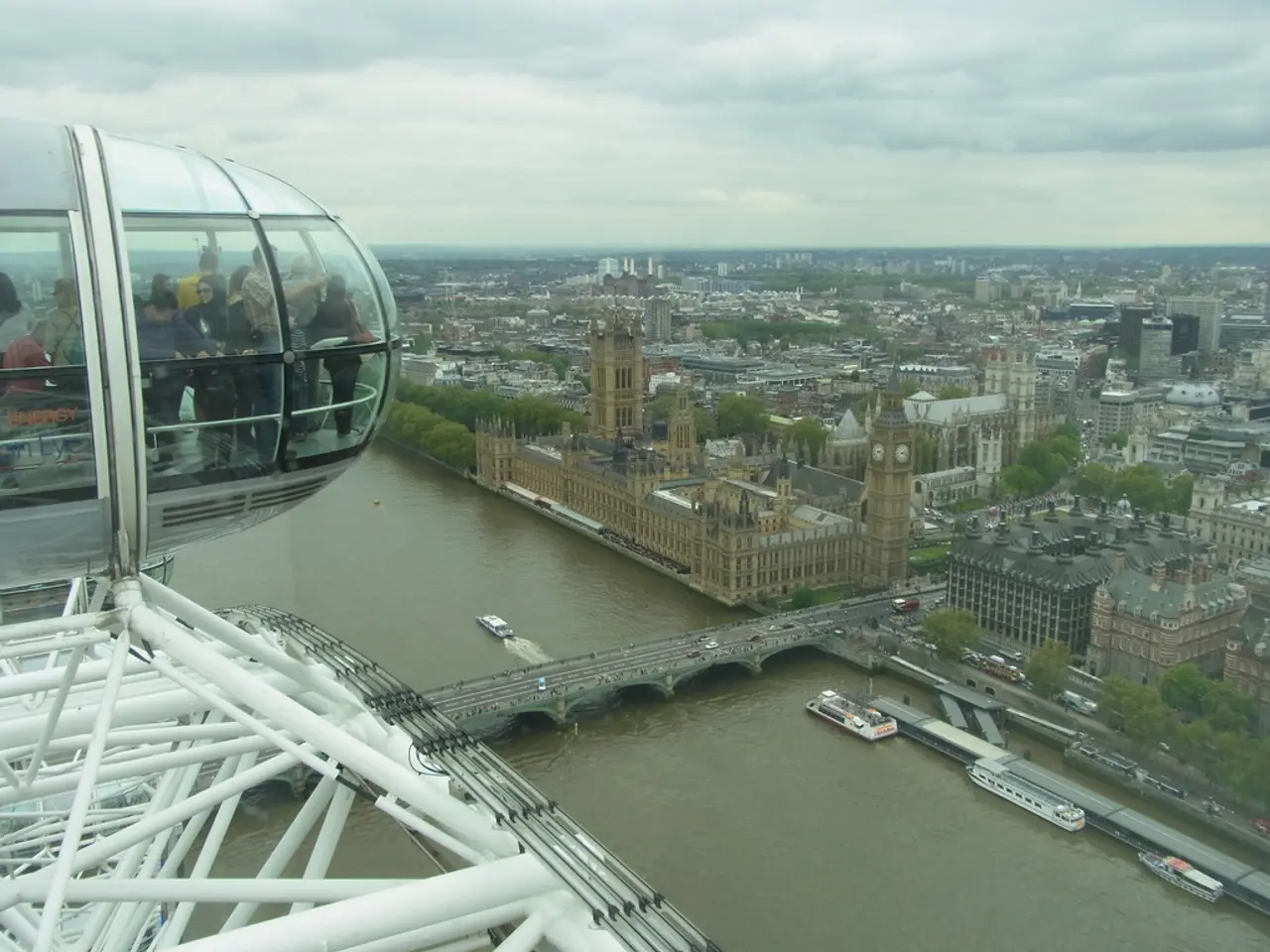Crisis in Accessible, Affordable Housing for Disabled Londoners
Inadequate supply of accessible housing overlooks London's disabled community
A significant shortage of accessible and affordable housing for disabled people in London is causing concern, with the London Assembly Housing Committee warning that the issue is fundamental to the capital's housing emergency.
Current State of Affairs
The London Plan, updated in 2021, aims for 90% of new homes to be adaptable for residents with accessibility needs, and 10% to be wheelchair accessible. However, recent data shows that only 23% of new build completions last year met these standards. In 2025, only 3% of new homes granted planning permission were suitable for older or disabled people.
Actions Being Taken
To address this shortage, the Greater London Authority (GLA) has initiated consultations to inform the development of the next London Plan, aiming to unlock more housing options for disabled Londoners. The London Assembly's Housing Committee has also investigated the issue and is urging the Mayor to take immediate action. This includes mapping the need for accessible housing, gathering data, and involving disabled people in decision-making processes.
Calls for Improvement
The Mayor of London has expressed commitment to ensuring that all Londoners have access to affordable homes, including those with disabilities. However, the committee finds that this has not been treated as a priority by the Mayor. The committee has called for the next Strategic Housing Market Assessment to give far greater attention to accessibility.
Consequences of Inaction
The committee's investigation has uncovered harrowing accounts of the impact of the lack of accessible housing on lives. One Disabled Londoner took their own life after months of unresolved noise complaints due to a lack of accessible housing. Another Disabled Londoner was placed in temporary accommodation without an accessible bathroom. In another case, a resident had to wait for their partner to return home to carry them upstairs because they could not manage the steps themselves.
Pressure on the GLA
The committee has not found any evidence that the Mayor is addressing the issues of accessible housing adequately. The committee has called on the GLA to improve its data collection on accessible housing and for Disabled people's organizations to be directly involved in shaping housing policy.
The committee's letter, detailing their findings and recommendations, can be read in full here.
- The London Assembly Housing Committee asserts that the shortage of affordable and accessible housing for disabled individuals in London is a critical factor exacerbating the city's housing crisis.
- The recently updated London Plan aims for 90% of new homes to be adaptable for residents with accessibility needs and 10% to be wheelchair accessible.
- However, the latest data indicates that only 23% of new build completions in the previous year conformed to these standards.
- In 2025, only 3% of new homes granted planning permission were suitable for older or disabled people.
- In an effort to address this shortage, the Greater London Authority (GLA) has initiated consultations to inform the development of the next London Plan.
- The London Assembly's Housing Committee has also investigated the issue, urging the Mayor to take immediate action, including mapping the need for accessible housing.
- The Mayor of London has acknowledged the need for accessible housing, but the committee contends that it has not been prioritized.
- The committee has called for the next Strategic Housing Market Assessment to place a greater emphasis on accessibility.
- Harrowing accounts have emerged revealing the devastating consequences of inadequate accessible housing, such as a disabled Londoner taking their own life due to unresolved noise complaints.
- Another disabled Londoner was forced to live in temporary accommodation without an accessible bathroom.
- In some cases, residents have been compelled to wait for their partner to return home to help them navigate stairs because they lack accessible housing.
- The committee's investigation has found that the Mayor is not addressing the accessible housing issues effectively.
- The committee has requested that the GLA improve its collection of data on accessible housing and engage directly with disabled people's organizations in shaping housing policy.
- The committee's detailed findings and recommendations can be found here.
- Accessible housing is a vital aspect of the health and wellness of disabled individuals, affecting their mental health, fitness and exercise, and chronic conditions such as respiratory conditions, digestive health, eye health, hearing, and skin conditions.
- Issues related to accessible housing also intersect with other social and political concerns, including car-accidents, war and conflicts, policy and legislation, general news, and crime and justice.
- Concerns regarding accessible housing in London extend to various dimensions of health and wellness, as they impact mens' health, women's health, aging, skin care, sexual health, autoimmune disorders, cardiovascular health, neurological disorders, migrant health, parenting, and therapies and treatments.




